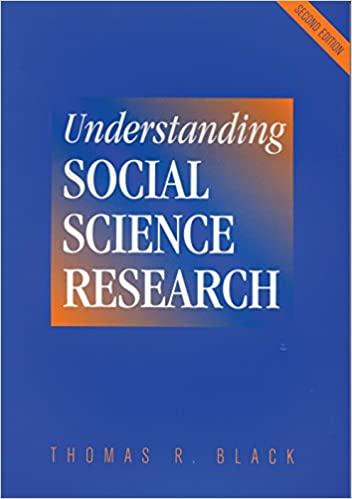Question
Friel (n.d.) states that our growth as human beings can often be a measure of our spiritual maturity, and he offers Erik Erikson's theory of
Friel (n.d.) states that "our growth as human beings can often be a measure of our spiritual maturity," and he offers Erik Erikson's theory of development as a useful framework for recognizing the development of our relationships with God. Humans pass through a number of stages during which we develop our relationships with ourselves, thus making us ready to develop our relationships with God in harmony with our self-concepts.
Erikson's model of psychosocial development has eight stages. The first five stages take place between birth and 18 years of age and help to develop the personality through meeting a primary crisis in each stage that helps to develop a virtue. Recall the information and body of research in the field of human development. The stages and virtues are:
- Trust vs. Mistrust (virtue: Hope)
- Autonomy vs. Shame (virtue: Will)
- Initiative vs. Guilt (virtue: Purpose)
- Industry vs. Inferiority (virtue: Competency)
- Ego Identity vs. Role Confusion (virtue: Fidelity)
The last three stages take place throughout adulthood and involve the maturation of the personality:
- Intimacy vs. Isolation (virtue: Love)
- Generativity vs. Stagnation (virtue: Care)
- Ego Integrity vs. Despair (virtue: Wisdom)
When you successfully pass through each stage, resolving its crisis, you becomes a healthy personality. If you fail to resolve one of the crises, then you may be impaired in resolving future crises and risk not completing some stages or developing a completely healthy personality (McLeod, 2013).
Jent (n.d.) describes a series of commitments that we make during spiritual formation, and he equates them to stages of life. Below, we have compared Erikson's stages of psychosocial development with Jent's spiritual commitments:
There is a great deal of research regarding human development and healthy relationship formation. This body of research can also help us to better understand spiritual formation, particularly as it pertains to the development of a personal relationship with God.
Similarly, an understanding of how we form relationships ultimately can help us to better understand the process of spiritual formation by understanding how humans develop their relationships with God. As humans grow and develop throughout their lives, they form beliefs and expectations about how safe and secure their relationships are with caregivers and other important figures in their lives. To that end, attachment theories in conjunction with developmental theories can also be used to gain insight into spiritual formation. Hall and McMinn (2003, p. 107) quote psychologist Mary Stewart Van Leeuwen:
"We are so unshakably created for community that we cannot develop as full persons unless we grow up in nurturing contact with others."
Based on their experiences, people develop different attachment styles. A four-category attachment model (Eckert and Kimball in Hall & McMinn, 2003) describes the following styles of relationship building:
- Securehave a positive view of themselves and others and have a healthy view of intimacy
- Preoccupiedhave a negative view of themselves but a positive view of others and are preoccupied with the concept of relationships
- Fearfulhave a negative view of both themselves and others, fear intimacy, and avoid relationships
- Dismissinghave a positive view of themselves but a negative view of others and dismiss intimacy
In Genesis 1:27, we read that "God created man in His own image." This is referred to asImago Dei(image of God). An important aspect of the Imago Dei is the relationships with self and God. Attachment theory and attachment styles help to explain one's relationships throughout life, including relationships with oneself, others, and God. Hall and McMinn (2003, p. 110) quote Kirkpatrick and Shaver (1992):
"People's beliefs about God or other deitiesand especially their perception of having a personal relationship with Godmay be in some sense functionally equivalent to human attachment relationships"
Upon successful completion of this assignment, you will be able to:
- Describe stages of psychosocial development and how they relate to a person's spiritual development.
- Apply attachment theory to understanding one's relationship with God.
- Reflect on stages of the soul's growth.
- Share your insights into how loyalty to something greater than ourselves can lead to spiritual growth and maturity.
- Apply attachment theory to understanding one's relationship with God.
- consider the quote, "Wholeness is holiness" (Friel), and the importance of maturity and a whole human being in developing spiritual maturity.
- journal for this week, record your thoughts.
- Submit completed journal entry
Step by Step Solution
There are 3 Steps involved in it
Step: 1

Get Instant Access to Expert-Tailored Solutions
See step-by-step solutions with expert insights and AI powered tools for academic success
Step: 2

Step: 3

Ace Your Homework with AI
Get the answers you need in no time with our AI-driven, step-by-step assistance
Get Started


